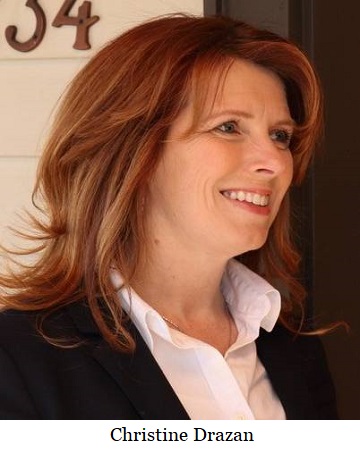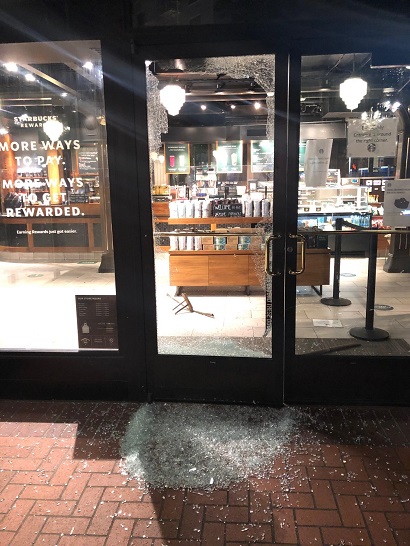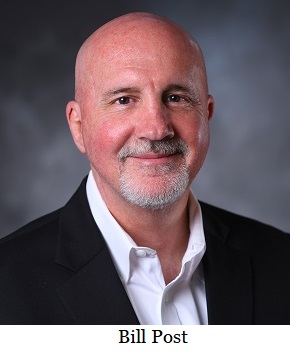 Post an Event
Post an Event
| Benton County Republicans’ Private Fundraising Event, “Bent-on Boots and Bling” with Trey Taylor |
| Friday, September 5, 2025 at 5:00 pm |
| Featuring Trey Taylor
Music Private Event
Friday, September 5, 2025 5:00-5:30 pm VIP Reception
5:30-8:00 pm Heavy Appetizers,
Auction, Concert
Red: $750 VIP Reception
Front Row Table Sponsor
White: $500 Table Sponsor
Blue: $50 per person
Limited Seating. Get Yours Now!!!
Support Local
Dress up: Bling, Cowboy, Patriotic Benton County Republican
FUNDRAISER
www.BentonGOP.org
Get your tickets today at:
https://www.bentongop.org/event-details/benton-county-republicans-fundraiser/form
About Trey:
Trey is the youngest African American Man in Country Music History. The Denver Post wrote
"It's impossible to miss his enthusiasm. With a fondness for cowboy boots, gaudy colors and dazzling jewelry, Trey Taylor could stand toe to toe with any of the Pop, Country or even Rap
contemporaries of his generation.“ |
| Trysting Tree Golf Club, 34028 NE Electric Rd., Corvallis |
Just what Oregon needs
In a 75 to 31 vote (total eligible voters estimated at 180), Oregon Legislative staff -- the people who work for the State Senators and Representatives -- voted to unionize.
However, the union conversation is not new.
SB 759 introduced by Senator Dembrow (D–Portland), Senator Gorsek (D–Portland) and Representative Wilde (D–Eugene) this session aimed to direct the Legislative Administrator to represent legislative departments in collective bargaining negotiations with legislative department employees, i.e., legislative employee unions.
However, after the bill passed the Senate on a party line vote, it was assigned to the House Rules committee where it has received just one hearing. This is possibly due to waiting for the outcome of the Legislative staff vote. During initial testimony on the bill, The Freedom Foundation testified that,
“Following recent attempts to organize a union of legislative employees, the Oregon Department of Justice (DOJ) has filed multiple objections with the Employee Relations Board (ERB) on behalf of the Legislature arguing that such efforts would violate both the Oregon Constitution and the state’s collective bargaining laws.â€
The pending outcome of the latest round of objections by Legislators themselves, however, did not stop a few other Legislators from continuing the conversation.
The union vote was organized by IBEW Local 89, located in Washington state. IBEW Local 89 represents workers in numerous industries including: Telecommunications Installation and Repair, Telecommunications Network Construction, Satellite installation and Repair, Warehouse and Logistics, Manufacturing, Clerical and Campaign workers. However, currently most state employees are unionized under SEIU 503. Staffers selected the International Brotherhood of Electrical Workers Local 89 to represent them, in part, because the IBEW does not actively lobby in state politics and SEIU 503 does.
In an email sent to Legislative staff from IBEW Local 89 they announced:
We are happy to announce the results of this morning’s union election. Through an overwhelming showing of bipartisan support, you and your coworkers have voted “UNION YESâ€!
This is a monumental win for every staffer in Oregon as well as those watching across the country. Through your solidarity, strength and determination, you all are leading the way for legislative staff everywhere to have a legitimate voice in their workplace and the power to make a difference.
What is interesting about the statement is that they said, “Through an overwhelming showing of bipartisan supportâ€. However, the balloting process was portrayed to staff as a secret ballot. How does the IBEW know it was bipartisan?
The announcement from IBEW was quickly followed by a joint press release from House Speaker Kotek (D- Portland) and Senate President Courtney (D – Salem) saying:
“We are committed to supporting the needs of the Legislature’s dedicated staff. The people’s work could not be done without them. Today, Oregon legislative aides took the historic step of becoming the first union of legislative staff in the country. We respect their decision, hear their voices and look forward to bargaining in good faith with their new union.â€
Several issues may still be unresolved even after the vote. Department of Justice lawyer Tessa Sugahara, was quoted in a
February OPB article saying,
“Legislative Branch employees are exempt from, and generally not subject to, the State Personnel Relations Lawâ€. She went on to add “The collective bargaining policy objectives of the Public Employee Collective Bargaining Act are irreconcilable with the policy objectives of the Oregon Legislative Assembly, and This situation raises both conflict and loyalty considerations that the PECBA policy did not anticipate.â€
When the union movement gets to a point of actual negotiations, it may also be the solution to a bill that Rep. Wilde (D- Eugene) brought forth this session but that has yet to be heard in the House Rules Committee.
HB 2220 removes the ability for member of Legislative Assembly to appoint or employ relatives or members of their household as their legislative staff unless relative or member of household serves as unpaid volunteer.
A D V E R T I S E M E N T

A D V E R T I S E M E N T
As most Legislators do not live in Salem year-round, they often employ their spouse or family member as a way to spend more time together and to supplement their legislative / household income. In addition, having a family member as their Chief of staff is often important to maintaining confidentiality and consistent communications with their constituents. After all, who know them better than their family. Also, many of the Legislative staff positions are limited duration positions, meaning they work only during the actual legislative session and not during the “off seasonâ€. By hiring family, the Legislator is also able to maintain some historical knowledge from session to session. This becomes even more important if they are a long serving member. Institutional knowledge of past legislation and actions can help make them more successful in the representation of their constituents.
One thing is certain, for better or worse, Oregon is once again a trailblazer in the political world as the first in the nation Legislative Staff union. However, there are still potential legal challenges surrounding the separation of powers clause in the Oregon Constitution, and unanswered questions about how the union will operate with the potential conflicts with the PECBA policy objectives. But what mostly remains is the potential problems that will arise when political leaders must bargain with the very employees who possibly share the same household with them.
--Terese Humboldt| Post Date: 2021-05-30 09:14:37 | Last Update: 2021-05-30 17:54:22 |
“We believe these would be truly transformational investmentsâ€
The May 2021 revenue forecast was rosy, and with the influx of federal assistance, Oregon has an opportunity to make critical investments. Oregon Association of County Clerks is asking for $40 million to update and improve the aging election infrastructure.
They request consideration to fund targeted investments to help secure and improve our election systems that Oregonians rely upon:
- $15 million for counties to obtain equipment and software changes needed to modernize and help implement any significant future election reform legislation, technical expertise to adapt voting systems and changing vendors to accommodate software changes as needed.
- If you proceed with any significant election reform this session, $5 million for a statewide education campaign regarding election changes and language translation service/tools – including, but not limited to, videos, social media posts, and multiple statewide television ads to break through clutter and indifference.
- $20 million for state software enhancements to the Oregon Central Voter Registration (KnowInk) – so we can have an election management system that is fully capable of communicating with other state agencies as necessary to do address updates to voter registration, and also for each county to have software to perform signature verification uniformly across the state.
Bobbi A Childers, President of Oregon Association of County Clerks stated, “We believe these would be truly transformational investments and improvement to our election system across the state.â€
Our county election officials are trying to do a good job. Still, No one can deny that there is a problem with election data being corrupted in our country. But Oregon still lacks an in-depth investigation into what types of voter fraud has taken place. Oregon received Election Security Funds from the Help America Vote Act (HAVA) to provide states with additional resources to secure and improve election systems. In 2018 Oregon received $380 million and in 2020 Oregon received $425 million, which doesn’t include funds to cover costs for the pandemic incurred by county election offices. Shouldn’t we ask them to account for these funds?
Janice Dysinger, Oregonians for Fair Election, is probably one of the most knowledgeable on Oregon’s voting systems. She says, “the weakest system in Oregon is the thumb drive transfer to the Election Night Reporting (ENR) system. Our data is obtained by querying the county election equipment tabulators and writing that information on a USB thumb drive then taking it out of the secure counting area and inserting it into another computer that is connected to the internet to send to the ENR system. A flaw in this system was recently reported in Douglas County in the May 18th, 2021, election which reported 5000 more voters than Douglas County sent.â€
Until the investigation is completed over the 2020 election, new equipment from the same vendor connections with the same algorithms will solve nothing. Dysinger says, “Until we can see that there are no algorithms inserted into election tabulators and computers, that the programing is open source for all to see the computer's operations, by all parties and no interference with the data transfer routing through other countries to the Election ENR system, we need to hold off on spending more money on equipment. A more honest approach would be to fund a back-up plan to count ballots by hand in the precincts and posting the results with the signatures of witnesses at the precinct level and a second copy with real witness signatures sent with the ballots and posted in the county elections office window and on their website. Then securely faxing the results to the Secretary of State to post on their website. Until then the American people will not feel secure in the results."
--Donna Bleiler| Post Date: 2021-05-29 21:52:46 | Last Update: 2021-05-29 22:11:07 |
He’s still impacting your community
Senators Sara Gelser (D-Corvallis), Floyd Prozanski (D-Eugene), Michael Dembrow (D-Portland), Chris Gorsek (D-Portland), Kate Lieber (D-Beaverton), Representatives Janelle Bynum (D-Clackamas), Pam Marsh (D-Ashland), Andrea Salinas (D-Lake Oswego) have sponsored
SB 571, a simple bill which would let incarcerated felons vote from the comfort and safety of their own jail cell
The bill did not poll well.
| Strongly Support | 18% |
| Somewhat Support | 18% |
| Somewhat Oppose | 16% |
| Strongly Oppose | 37% |
| Don't Know | 10% |
The bill provides that the incarcerated felon's place of residence -- for the purpose of identifying what districts they vote in -- will be their last voluntary residence. So, not only does the felon get to impact the community through crimes committed, but once incarcerated, they get to impact that same community through a vote:
Section 5, (2) The Secretary of State shall by rule establish a process for identifying, for an individual confined in a jail, prison or correctional facility, including a local correctional facility as defined in ORS 169.005 or youth correctional facility as defined in ORS 420.005, the last voluntary residence of the individual prior to the confinement for the purposes of the individual registering to vote or updating the individual’s voter registration.
The bill passed out of a Senate Committee on a partisan vote, and was sent to the Joint Committee on Ways and Means, where it will most likely not be passed out.
--Staff Reports| Post Date: 2021-05-29 16:36:54 | Last Update: 2021-05-29 17:22:49 |
SB 554 may be unenforceable
Currently awaiting the signature of Governor Kate Brown, Oregon seems about to adopt a very controversial and likely unenforceable law with
SB 554. The bill has passed in both legislative chambers. It mandates gun storage requirements on all Oregonians.
Representative Boomer Wright (R-Coos Bay) made the following statement upon it's passage in the House:
SB 554 includes a mandatory storage component to hold victims of theft liable if their firearm is stolen and used in a crime before they can report it missing after a short time. In some parts of Oregon, reasonable access to a firearm is the only immediate form of defense that homeowners have against intruders, while it may take more than 30 minutes for law enforcement to arrive after a 911 call.
This proposal would criminalize law-abiding citizens by making it a felony for individuals with concealed carry permits to bring their form of protection to an area near a public building. SB 554 would make felons of responsible gun owners.
Meanwhile, suicidal ideation among children continues to climb, and numerous studies have tied this to distanced learning.
SB 554 does nothing to provide them with support and resources, failing to address the mental health issues that are often at the root of unwanted firearm usage. “This is certainly a bad bill for Oregonians, and I wish blocking this proposal was as simple as walking out,†said Representative Boomer Wright (R-Coos Bay.)
“This tool has been successfully used in the past to stop other harmful proposals and save Oregon nearly $1 billion. Unfortunately, walking out is not a realistic option to prevent SB 554 from passing."
Under the current “State of Emergencyâ€, Governor Brown can (and will) issue an Executive Order in response to a walk out that would create a special session with NO quorum rules. If this occurs, the super-majority will pass anything they want.
The House Speaker enacted a $500 fine per day, per person for any unexcused absence. This money would be required to come out of each legislator’s own pocket, and could exceed $500,000 for all Republican members.
“Unfortunately, the supermajority has made it clear that they have zero regard for constitutional rights to personal safety,†added Representative Wright.
“This misguided proposal will make people less safe in their homes while criminalizing responsible and law-abiding gun owners. It does not address the root of the problem, but instead makes felons of responsible gun owners, levies misplaced accountability, and will have ZERO impact on criminal violence. We should be focusing on the root of the problem, not criminalizing citizens or putting them in danger.â€
--Staff Reports| Post Date: 2021-05-29 10:17:38 | Last Update: 2021-05-29 19:15:30 |
To shoot or not to shoot?
Editor's note: A previous version of this article said that the Red Cross was not accepting blood donations from vaccinated people. This is untrue. We regret the error.
How much is your health worth? Would you play Russian roulette with your own health? There have been many concerns about the coronavirus, and now concerns have surfaced about the safety of the covid vaccines.
However, it seems Governor Kate Brown doesn’t care about the shortage of blood supply. She announced the launch of
the Take Your Shot Oregon Campaign for all vaccinated Oregonians. Her aim is to get 70 percent of Oregonians vaccinated so it seems that leaves just 30 percent potential donors to give blood for surgeries and other situations where antibodies are needed in blood replacement.
It’s a double lottery one must play to win. Oregonian’s 18 and older will have the chance to win $1 million or one of 36 $10,000 prizes––with one winner in each county in Oregon. Oregonian’s age 12 to 17 will have a chance to win one of five $100,000 Oregon College Savings Plan scholarships. All Oregonians who have received at least one dose of a COVID-19 vaccine by the draw date will be entered to win.
Who approved the $1.86 million used from the federal Coronavirus Relief Act funds Oregon received? Is this the best way for funds to be used for economic relief and recovery? How many having reactions to the shots will have a case to sue over manipulation? How many still-born babies will be casualties?
The lives of America’s youth may also now be at risk over an experimental injection for a virus which is 99.97% survivable and 99.998% for children 17 and under, and those number are before current medications have been proven effective. While all children are capable of getting the virus that causes COVID-19, they don't become sick as often as adults. Most children have mild symptoms or no symptoms, according to the American Academy of Pediatrics and the Children's Hospital Association, and in the U.S. children represent only about 13% of all COVID-19 cases.
Children are not severely affected by COVID-19, so why should they receive an experimental vaccine? CDC admits that no completed experiments have been performed to know if there may be long term effects. Now our children are being pressured to take a shot in order to return to their old, normal lives (school, sports, friends).
--Donna Bleiler| Post Date: 2021-05-28 14:20:23 | Last Update: 2021-05-29 21:52:46 |
At the heart of the issue is recidivism
SB 819 is proposing prisoners serving time be allowed to go back to court and ask for a sentence reduction. This is another way to break Measure 11 sentencing.
This bill is designed to allow Multnomah County District Attorney Mike Schmidt -- known for his "
catch-and-release" policies --, and one or two other District Attorneys of like mind, to get together with criminal defense attorneys and petition the county circuit courts to set aside Measure 11 convictions and sentences so as to allow lesser crimes of convictions and sentences -- with no mandatory minimum prison sentence -- to replace the original conviction.
Is this a solution to the Oregon's high prison population? During this time of a slowdown asked for by our head Supreme Court Justice led to 209,122 fewer criminal cases were filed in court statewide, from 2019 to 2020. More than a third lower. It adds cost at the county level by pushing even more cases on the court now -- which even at reduced numbers is 3% slower processing cases through the system. Sadly, it doesn’t equate to less crime -- but to more tickets. There are many crimes that cannot be given a ticket or violation resulted in jail because of COVID rules. We have more crime and less punishment. Less chance for those damaged to collect damages. More repeats.
At the heart of the issue is recidivism. How often do they repeat their crime? This is biggest impact on society. Looking at Oregon statistics showed that 41% committed a new crime within 3 years for a misdemeanor. Rate for felonies is higher, 55% committing new crimes within 3 years.
Thomas Paine, a founding father who wrote about effective government said: When a man has so far corrupted and prostituted the chastity of his mind as to subscribe his professional belief to things he doesn’t believe, he has prepared himself for the commission of every other crime.
A D V E R T I S E M E N T

A D V E R T I S E M E N T
Carolyn Leaf, PhD, brain expert and writer of
Who Shut Off My Brain, exposes the real issue. Are we effectively changing the strongholds in the minds of those with a pattern of crime? The mind develops our response to any given situation by our past reaction. If we allow a certain response and act on it, it becomes a tree built in our mind. The next time the same situation comes up we do the same thing prompted by our mind.
Here’s some bright spots liberals ought to notice: Private rehab organizations have recidivism rates as low as 7%. Bridges for Change, SE Works, PEP, Prison Entrepreneurship, Delancey Street Foundation, Safer Foundation, and The Last Mile, are all examples. These programs show we do know what does work. Why are we ignoring this?
--Liz Turner| Post Date: 2021-05-28 09:46:41 | Last Update: 2021-05-30 10:22:52 |
Bill approved limited lane splitting
Governor Kate Brown has vetoed
SB 574, a bill that would allow motorcycle traffic to "filter" into traffic under certain conditions. As required by Article V of the Oregon Constitution, she
notified both chambers of the legislature of her reasons for doing a veto.
This bill would allow a person operating a motorcycle to travel between lanes of traffic, under certain conditions and in specific circumstances. Some of the conditions set forth in the bill include the requirement that traffic is either stopped or has slowed to a speed of ten miles per hour or less, that the motorcyclist travels between lanes at no more than ten miles per hour above the speed of traffic, and that the motorcyclist does not impede normal movement of traffic. This practice, known as "lane filtering," is currently unlawful-as it is in many other states-due to legitimate public safety concerns.
While I appreciate that SB 574 is more tailored than previous attempts to legalize lane filtering, I have several concerns with the bill as currently drafted, particularly related to public safety and noncompliance with the proposed conditions, which prevent me from approving it. First, many stakeholders, including law enforcement agencies and members of the public, remain concerned that lane filtering is unsafe for both the motorcyclists and the drivers sharing the road, due to the serious injuries and death that commonly result from motorcycle-involved accidents. Second, although the bill proposes conditions with which a motorcyclist must comply (such as a maximum speed at which motorcyclists can travel between lanes), I remain worried that some will not adhere to these conditions.
 Based on these concerns, I am returning SB 574 unsigned and disapproved.
Based on these concerns, I am returning SB 574 unsigned and disapproved.
According to the Oregon Constitution, if two-thirds of the members present in each chamber vote to override the veto, it becomes law, but most insiders think that this is unlikely, despite the fact that it passed by more than a two-thirds vote in the House, and might be expected to garner a two-thirds vote in the Senate, if all of the Republicans and Independents show.
--Staff Reports| Post Date: 2021-05-27 14:45:22 | Last Update: 2021-05-28 09:46:41 |
"This is the time to be easing restrictions"
The Jackson County Commissioners -- Rick Dyer, Dave Dotterrer and Colleen Roberts -- have sent a
letter to Oregon Governor Kate Brown asking for COVID-19 restrictions to be eased, calling these restrictions "misguided" and saying that they "place unfair and undue responsibilities on local businesses and churches, and their employees and leaders."
The letter describes the burden on public establishments:
As a practical matter, requiring businesses and churches, and the employees of those businesses and churches, to verify a person's vaccine status is only going to lead to conflict between employees and customers. As Jackson County's restaurants, venues, churches, and other businesses have been devastated by shutdowns, restrictions, and limitations on their ability to provide service and function for over a year, the last thing any of these businesses and churches need is yet another, unsupported by science, mandate from the State of Oregon that is only going to lead to conflict as these businesses and churches and their employees begin the long and arduous task of attempting to rebuild what they have lost.
A
de facto ethos seems to be evolving in the state in which public establishments ask patrons to be vaccinated or wear a mask, but fail to insist on proof of vaccination -- what amounts to an honor system. The commissioners closed by tying the availability of vaccines to the easing of restrictions:
Vaccines are readily accessible to any resident of Jackson County who wants to receive a vaccine. Any resident of Jackson County can walk up and obtain a vaccine without an appointment. This is the time to be easing restrictions, not creating new mandates in the guise of easing restrictions.
--Staff Reports| Post Date: 2021-05-27 13:48:01 | Last Update: 2021-05-27 14:45:22 |
More than just honoring our country
The Gresham-Barlow School District Board of Directors has had a busy month.
They started out the month by accepting Superintendent Dr. A. Katrise Perera's letter of resignation, effective June 30, 2021, they saw 3 board seats changed in the election and 1 incumbent member drop out of the race, and this week they will vote on whether to change its flag display policy (Policy INDB). If approved, all schools in this district could display a Black Lives Matter (BLM) flag and a Progressive Pride flag, on school grounds and in all classrooms, along with the statutorily required American flag, Oregon flag, and POW/MIA flag as mandated in law by ORS 339.875 - Procurement, display and salute of flags. Which reads in part:
(1) Each district school board and public charter school governing body shall:
(a) Procure a United States flag and an Oregon State flag of suitable sizes and shall cause the flags to be displayed upon or near each school building under the control of the board or used by the governing body:
(A) During school hours, except in unsuitable weather; and
(B) At any other time the board or the governing body deems proper.
(b) Procure United States flags of a suitable size for classrooms and cause a flag to be displayed in each classroom in each school building under the control of the board or used by the governing body.
(c) Provide students with the opportunity to salute the United States flag at least once each week of the school year.
#BlackLivesMatter was founded in 2013 in response to the acquittal of Trayvon Martin’s death. The flag used by the organization is an adaptation of the National Association for the Advancement of Colored People (NAACP) flag developed in the 1920’s to draw attention to lynching’s. 90 years later, Brooklyn-based artist and activist, Dread Scott, re-created the flag because he saw a parallel between the lynching’s and current day police killings and the Black Lives Matter flag was born.
The Progressive Pride flag is a take on the original rainbow Pride flag designed in 1978 by artist and gay rights activist Gilbert Baker. He came up with the design after prominent gay rights leader Harvey Milk urged him to create a new, positive symbol that the entire LGBTQIA+ community could rally behind. Today there are more than 20 different takes on the original design. However, the proposed change to the GBSD policy explicitly states the display of the Progressive Pride Flag. It was designed by Portland queer, non-binary demisexual designer, Daniel Quasar.
A D V E R T I S E M E N T

A D V E R T I S E M E N T
In addition to the flag discussion, the other change being considered is whether to expand the policies to give all students the time to learn and sing the Black National Anthem, adding to existing state statute requirement that public schools provide a weekly opportunity to recite the pledge of allegiance. The proposed policy change says:
They (students) will also receive instruction on native land acknowledgements and have the opportunity to recite it at least once each week. Students shall learn the U.S. national anthem, The Star-Spangled Banner, AND the Black National Anthem, Lift Every Voice and Sing.
The Black National Anthem, Lift Every Voice and Sing, was written as a poem by James Johnson. In 1919, the (NAACP) dubbed it "the Negro National Anthem" for its power in voicing a cry for liberation and affirmation for African-American people. The song is a prayer of thanksgiving for faithfulness and freedom, with imagery evoking the biblical Exodus from slavery to freedom.
If you are interested in watching the District Board meeting live, it takes place on Thursday May 27 at 6:00pm
Link to join the board meeting via zoom:
https://us02web.zoom.us/j/85139686099?pwd=NUh0Q0xFaStacTRRM1llVENDMTZVQT09
Meeting ID: 851 3968 6099
Passcode: 388656
Or join by phone:
Dial US: 1-253-215-8782
--Terese Humboldt| Post Date: 2021-05-27 09:27:18 | Last Update: 2021-06-01 09:32:07 |
“This bill provides protections to keep our main streets open right now.
A bi-partisan coalition of Republicans and Democrats nearly approved common-sense liability protections for small businesses during the pandemic.
HB 2638 limits liability for certain claims for damages arising out of acts or omissions taken during COVID-19 emergency period in reasonable compliance with government guidance related to COVID-19. Oregon House Republican Leader Christine Drazan (R-Canby) made a motion to pull the bill from committee to the House floor for a vote.
Republicans and Democrats believe limited common-sense liability protections are needed to protect small businesses who follow the rules from bad actors trying to take advantage of the ongoing pandemic.
The motion narrowly failed, despite bipartisan support.
“COVID-19 health requirements for businesses have constantly evolved during the pandemic as circumstances have changed and we learn new information,†said Leader Drazan. “This bill simply provides better protections to keep our businesses and main streets open right now.â€
--Staff Reports| Post Date: 2021-05-26 14:40:33 | Last Update: 2021-05-26 17:51:11 |
What a riot!
On May 25, 2021 -- the one-year anniversary of the death of George Floyd -- at around 5:30 p.m., about one hundred people gathered at Revolution Hall in southeast Portland and walked in the street to the Burnside Bridge and back, over the course of about 90 minutes. The group had signs and drums and sang and chanted as they walked peacefully.
A little before 8:00 p.m., a different gathering started in the area of Southwest 3rd Avenue and Southwest Main Street. At about 8:45 p.m., they began blocking the intersection. Some people were wearing helmets and carrying gas masks, backpacks and tote bags.
At about 9:13 p.m., people pushed a dumpster against the Justice Center near Southwest 3rd Avenue and Southwest Main Street. People tried to get a fire started in the dumpster. Many people approached the Justice Center holding umbrellas to obscure their actions and movements. At least two people pried at doors on the north side of the building. Several people used umbrellas to conceal their actions and lit a fire in the dumpster at about 9:21 p.m. while people chanted to burn the building down.
Based on the criminal activity of people in the crowd, officers gave public address announcements that the assembly was unlawful. Officers moved toward the crowd to create space for Portland Fire and Rescue to safely enter the block to put out the dumpster fire against the building. People threw frozen water bottles, glass bottles, eggs and metal spikes at officers and fired mortar-style fireworks at officers. People tore down fencing around Chapman Square Park and used fence segments to block Southwest 4th Avenue near Southwest Main Street.
Police cleared metal spikes from the street so firefighters could get close enough to extinguish the fire. People in the crowd formed rows while those closer to the front of the crowd held umbrellas to obscure the view behind them. People from further back threw objects at officers including frozen water bottles, eggs and metal spikes. When the fire was out and firefighters got safely away, officers deployed smoke then left the area.
While the crowd blocked the intersection of Southwest 3rd Avenue and Southwest Main Street, some people incited others to move through the city to destroy property. At about 9:51 p.m. the crowd of over 200 moved west toward City Hall where people broke out windows. They walked north along Southwest 5th Avenue breaking windows and damaging property. Police gave public address announcements declaring the violent and tumultuous conduct of the crowd a riot and gave directions to disperse.
As the crowd walked through downtown, some people broke windows and damaged property at businesses. Slowly, as the number of people in the crowd became smaller and smaller, they began to spread out, fight among themselves and light occasional trash can fires. People within the crowd were overheard saying the night was a success.
Officers made targeted arrests.
By midnight the crowd was down to about a few dozen people milling around.
The following people were arrested and booked into jail:
30-year-old Elizabeth Hall -- Criminal Mischief II
30-year-old Emery Hall -- Criminal Mischief II, Escape III
23-year-old Rhiannon Millar-Griffin -- Criminal Mischief I, Riot
22-year-old Jacob Myers -- Criminal Mischief I
21-year-old Jarrid Huber -- Arson I, Criminal Mischief I, Criminal Mischief II x 5, Riot
--Staff Reports| Post Date: 2021-05-26 14:25:06 | |
Let NAVs vote in the Republican Primary?
Instead of the constant drumbeat of "voter fraud" how about we tackle the
real issue concerning elections in Oregon? Voter registration. These numbers are for real. No they didn't change 300,000 voter's registration. That is
not happening. Not 300,000. Maybe a mistake here or there. Folks, we
must focus on those NAV (non affiliated voters). I believe it's time for Oregon Republicans to change the state platform and allow NAV's to vote in our Primary. It's a fact that when "Bob" votes for "Bill" in a primary, he will very likely vote for "Bill" again in the General. I am not seeking an "open primary" which would let any registered voter in, just NAV's and Republicans. The Democrats hate this idea and will not adopt it.
I believe we can take this state in
one election if we do this. Otherwise, we are stuck in the same holding pattern of losing due to the sheer numbers of Democrats now registered in Oregon. Instead of complaining about a "problem" that no one can really seem to prove, let's make something real happen. I know the "old dog" GOP will hate this idea....but it's time for fresh ideas and I am offering one.
One more note: it's not 6 or 7 counties that swing elections in Oregon anymore....count them...there are now
thirteen!! That's one third of the state. Folks: we need to really come to grips with these numbers and change our approach.
Oregon Republicans: think about it.
The SOS site shows registration by county, representative, senate and Congressional districts as of April 2021. The numbers don't lie. I am open to ideas of how to overcome that 300,000 voter registration gap. Feel free to give your ideas in social media. I only see positives with letting NAV's into our primary.
 --State Representative Bill Post
--State Representative Bill Post| Post Date: 2021-05-26 13:42:34 | Last Update: 2021-05-26 14:08:22 |
Read More Articles









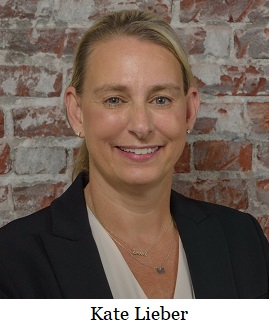




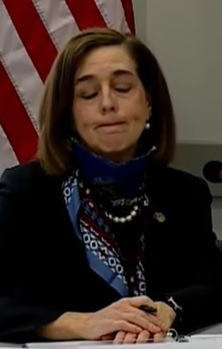
 Based on these concerns, I am returning SB 574 unsigned and disapproved.
Based on these concerns, I am returning SB 574 unsigned and disapproved.



